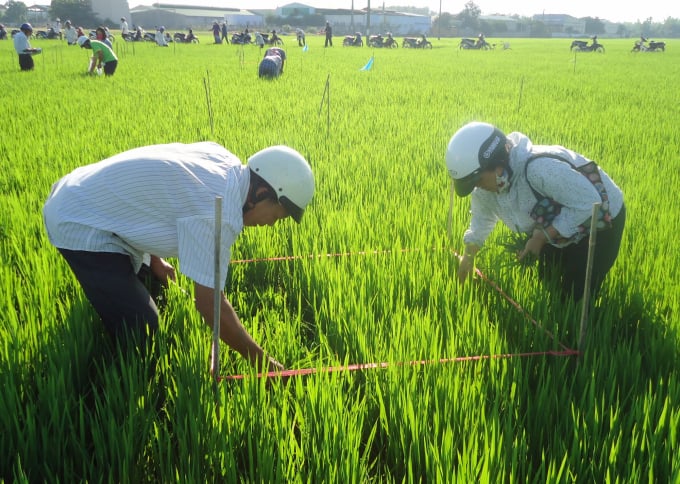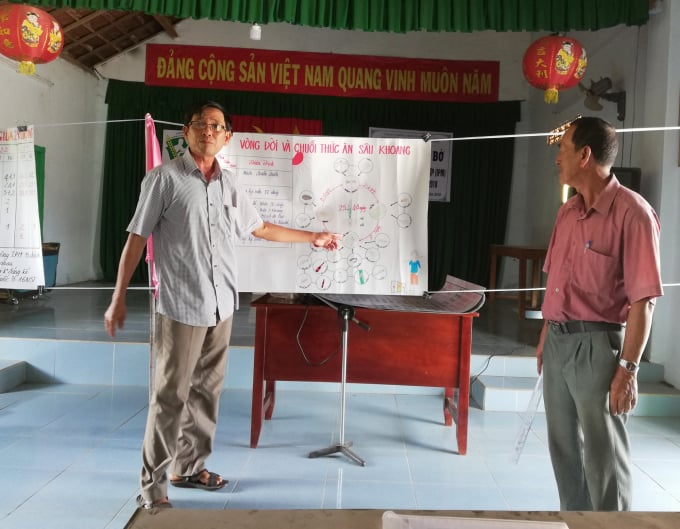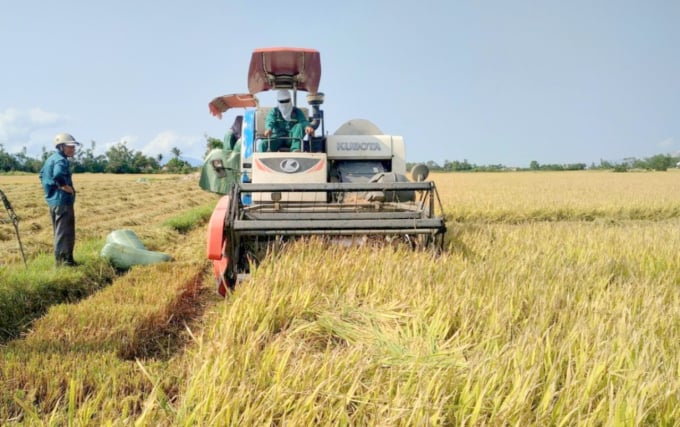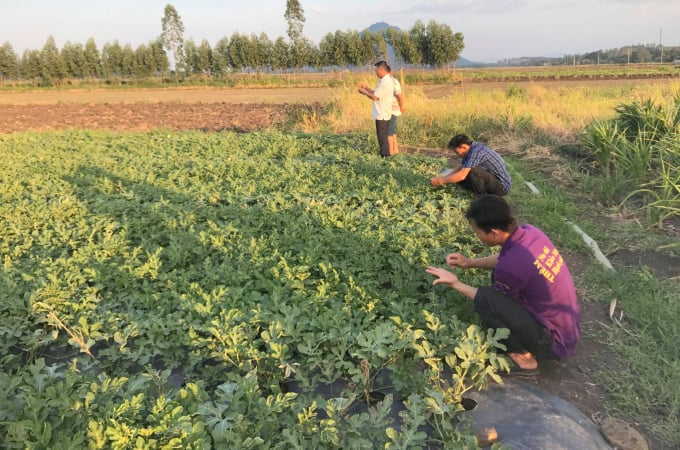November 27, 2025 | 20:20 GMT +7
November 27, 2025 | 20:20 GMT +7
Hotline: 0913.378.918
November 27, 2025 | 20:20 GMT +7
Hotline: 0913.378.918

Phu Yen currently has nearly 50% of the cultivated area applying the IPM program. Photo: KS.
Since 1994, in Phu Yen, the integrated pest management (IPM) program has soon been implemented. Farmers are trained and applied this program on rice, vegetable fields..., but the area is not much.
It was not until the period from 2015 to 2020 when the Phu Yen Department of Agriculture and Rural Development advised the Provincial People's Committee to issue a plan on the implementation of the project to promote IPM application on crops that the application area is expanded throughout the local fields in the province.
According to Mr. Nguyen Le Lanh Da, Director of the Sub-Department of Cultivation - Plant Protection Phu Yen, up until the present date, IPM has been widely applied by farmers in the province on rice and vegetable crops through programs and VietGAP production models, following the organic direction, application of technical advances such as "3 decrease, 3 increase" (3G3T), ICM, "1 right, 5 decrease" (1P5G), production linkage...
In particular, the program has trained IPM lecturers (ToT) at agencies and units along with 30 local lecturers; trained 1,830 IPM farmers. This is the core force to continue implementing the IPM program in the coming time in localities.

An IPM workshop for farmers. Photo: KS.
As assessed by Mr. Phung Minh Tuan, Chairman of the Board of Directors, Director of Hoa My Tay Service Business Cooperative (Hoa My Tay Commune, Tay Hoa), IPM is a very meaningful program, bringing a lot of benefits to farmers and agriculture. Specifically, IPM has helped farmers accurately identify pests and diseases in the field and which objects are their natural enemies, thereby proactively taking measures to control them.

Having expanded the application of IPM, Phu Yen farmers not only increase productivity, but also greatly reduce production costs, protect the fields’ ecological environment. Photo: KS.
"IPM has changed farmers' perception in agricultural production drastically. As we understand which pests and diseases and at what depth should we spray. since then, the number of sprays has been significantly reduced, protecting the environment and ecosystems, especially considering the natural enemies in the field. This is also the principle towards clean agriculture", shared Mr. Tuan.
Sharing the same view as Mr. Tuan, Mr. To Tan Nguyen, Director of Hoa Kien 1 Agricultural Service Business Cooperative (Tuy Hoa City) also said that from 2014 up to now, the application of IPM on rice has helped farmers of cooperatives save costs on pesticides, labor, and increase production profits.
“Now, people have changed their farming methods, they don't seem to use pesticides anymore. When pests and diseases appear, the Plantation - Plant Protection Station and the cooperative visit the fields for inspection and give appropriate recommendations, so farmers do not arbitrarily spray. Since the application of IPM, the entire cooperative rice field of about 70 ha has fewer pests and diseases because their natural enemies are well-protected. In the winter-spring crop, the average rice yield of the cooperative is 80 quintals/ha, up to 90 quintals/ha in some fields, and 7.5 quintals/ha in the summer-autumn crop”, said Mr. Nguyen.

Not only rice, IPM is also increasingly applied by vegetable farmers in Phu Yen. Photo: KS.
It is known that in recent years, the rice productivity of Phu Yen province has been experiencing an annual increase. In which, in 2020, with the rice cultivation area for the whole year reaching 54,793 hectares, the average yield is 71.1 quintals/ha and the total output is 389,578 tons.
Mr. Nguyen Le Lanh Da, Director of Phu Yen Plantation and Plant Protection Sub-Department, said that with the benefits and effectiveness of the IPM program, the Sub-Department will continue to direct Cultivation and Plant Protection Stations to cooperate with localities to promote communication and guide farmers to expand the model.
Moreover, the Sub-Department will strengthen the application of science and technology in agriculture; using high-yield and high-quality varieties adaptive to climate change, implementing advanced technical procedures and sustainable farming methods.
Translated by Samuel Pham

(VAN) According to Mr. Vo Minh Thanh, Director of the Tay Ninh Department of Agriculture and Environment, Resolution 57 has created a new development pathway for the locality, shifting from traditional toward modern agriculture.
/2025/11/26/4909-2-154329_878.jpg)
(VAN) Pearl grouper farming in HDPE cages not only delivers economic efficiency but also contributes to protecting the environment, creating jobs, and promoting marine-based experiential tourism.

(VAN) The model of making a living under the forest canopy through the agroforestry system in Van Son commune, Bac Ninh province, is expected to generate an annual income of approximately VND 30 million/ha.

(VAN) Many enterprises in Can Tho are harnessing natural energy and reducing greenhouse gas emissions in their production processes, thereby contributing to the promotion of a sustainable green transition.
/2025/11/24/3536-2-112800_176.jpg)
(VAN) Dong Nai now has tens of thousands of hectares of forests certified for sustainable management, and this area will continue to be expanded in the coming period.

(VAN) Vinh Ha hamlet (Dai Xuyen commune, Hanoi) is shifting away from small-scale farming as households adopt bioscurity into their breeder chicken models.

(VAN) Heavy rains make aquatic species more vulnerable to disease. Proactive water management and high-tech systems help farmers prevent outbreaks and protect yields.